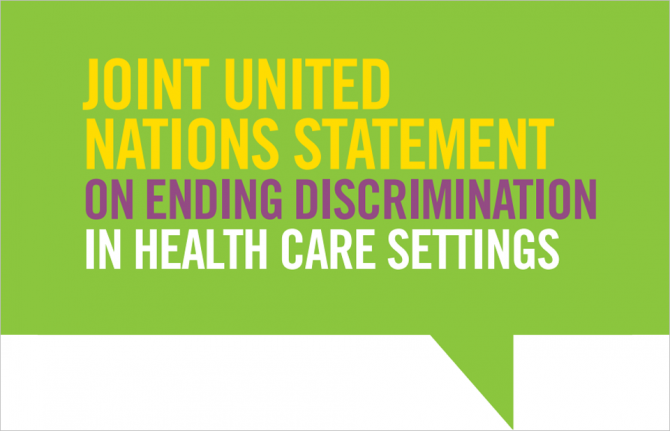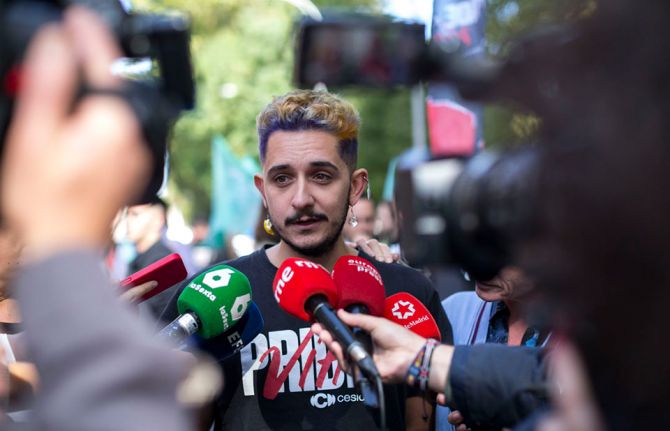

Update
Twelve United Nations agencies commit to working together to end discrimination in health-care settings
30 June 2017
30 June 2017 30 June 2017On 30 June, 12 United Nations entities released an unprecedented joint statement calling for ending discrimination in health-care settings and committing to work together to support Member States to provide health-care services free from stigma and discrimination. The statement is a powerful call to action for governments to do more to address discrimination in all its different forms and will contribute to the achievement of many of the Sustainable Development Goals, ensuring that no one is left behind.
Discrimination in health-care settings is directed towards some of the most marginalized and stigmatized populations, the very populations that states promised to prioritize through the 2030 Agenda for Sustainable Development and who are all too often excluded or left behind.
Discrimination affects both the users of health-care services and health-care workers. It serves as a barrier to accessing health services, affects the quality of health services provided and reinforces exclusion from society for both individuals and groups.
Many individuals and groups face discrimination on the basis of their age, sex, race or ethnicity, health status, disability or vulnerability to ill health, sexual orientation or gender identity, nationality, asylum or migration status, or criminal record, often experiencing intersecting or compounding forms of discrimination.
Discrimination in health-care settings takes many forms and is often manifested when an individual or group is denied access to health-care services that are otherwise available to others. It can also occur through denial of services that are only needed by certain groups, such as women. Examples include specific individuals or groups being subjected to physical and verbal abuse or violence, involuntary treatment, breaches of confidentiality and/or denial of autonomous decision-making, such as the requirement of consent to treatment by parents, spouses or guardians, and lack of free and informed consent.
The agencies supporting the statement are the UNAIDS Secretariat, the Office of the United Nations High Commissioner for Refugees, the United Nations Children’s Fund, the World Food Programme, the United Nations Development Programme, the United Nations Population Fund, UN Women, the International Labour Organization, the United Nations Educational, Scientific and Cultural Organization, the World Health Organization, the Office of the High Commissioner for Human Rights and the International Organization for Migration.



